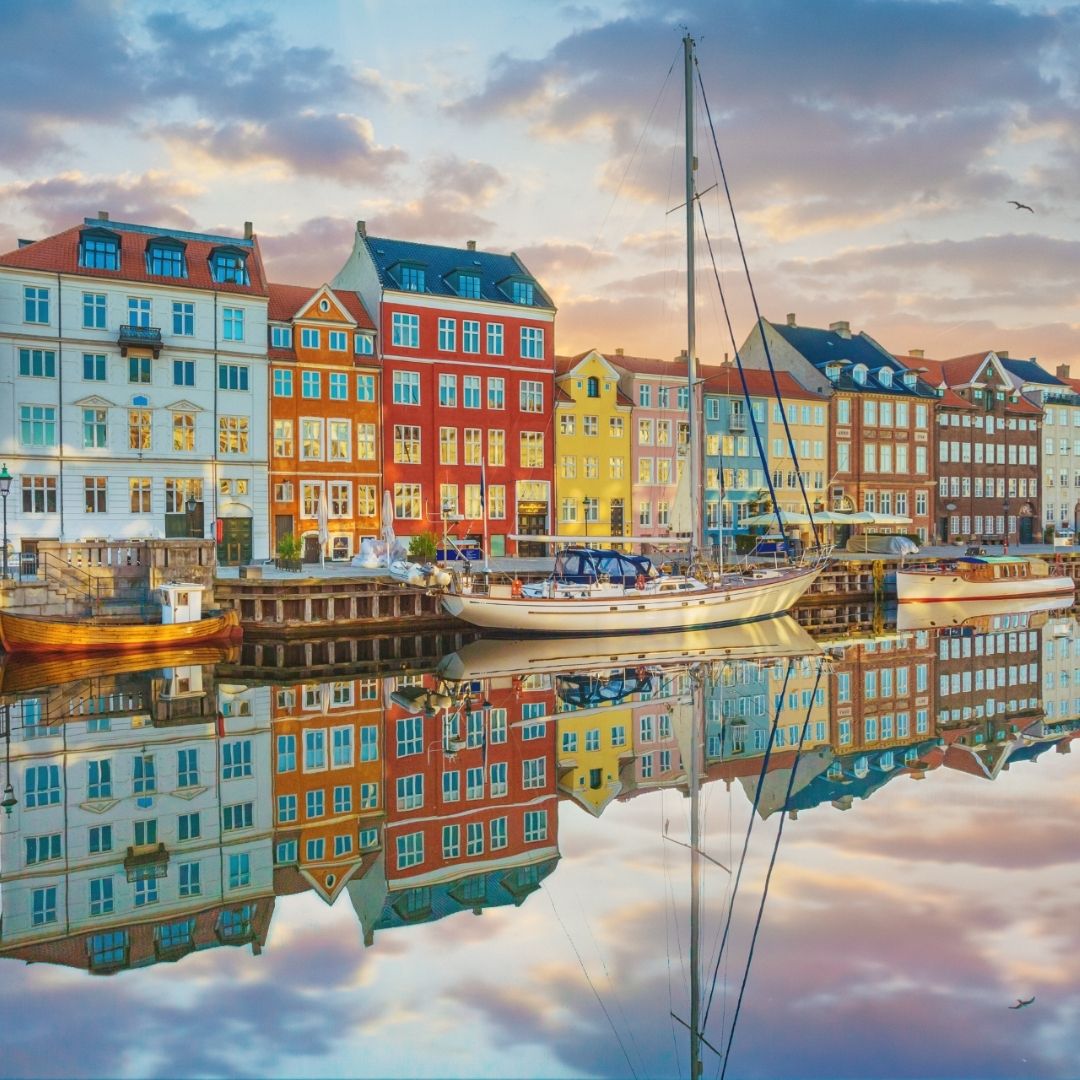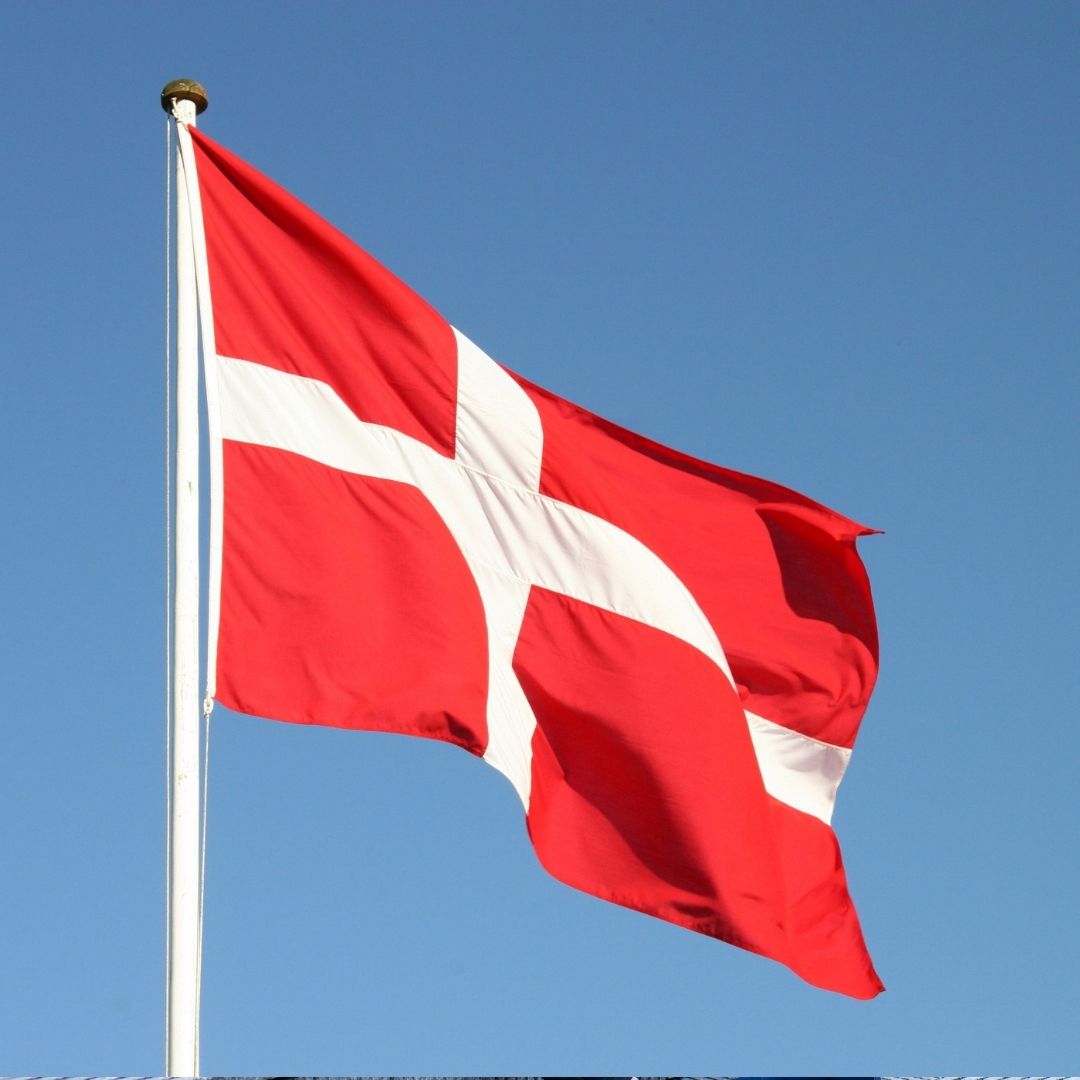
Why is it worth it?
Universities and fields of study
Study Programs in Denmark
Cost of living and studies
Work and scholarship
Application for Studies in Denmark
Study in Denmark
It is a country that always ranks on the podium of the rankings of the happiest countries in the world, thanks to a thriving economy, openness to the world and an amazing combination of tradition and modernity.
Why is it worth it?
Why is it worth it?
Are you wondering why Denmark is so popular among international students? Discover what makes this country so unique and what opportunities it offers.
Let’s start with a summary of the most important information about Denmark:
Denmark, the smallest country in Scandinavia, is full of contrasts – it combines traditional, picturesque buildings with modernist architecture, creating a unique atmosphere. A society guided by the philosophy of hygge, striving for equality, and promoting eco-friendly living is just part of what sets Denmark apart from other countries.
Thanks to a strong economy and world-renowned companies such as Lego, Jysk, and Nordea, Denmark offers excellent career development opportunities. Here you will find a very high quality of life and outstanding prospects for the future.
The level of education in Denmark is among the highest in Europe, with universities attracting students through their modern approach to teaching and excellent infrastructure. Although the number of English-taught programs has been reduced in recent years, there are still plenty of degrees available entirely in English.
By choosing Denmark as your study destination, you can expect practical education, an international environment, and strong support in building your career.
Although Denmark is not one of the cheapest countries to live in, it more than makes up for it in two ways – firstly, higher education is completely free here, and secondly, you may qualify for scholarships of up to €930 per month!
Denmark, with its innovative approach to education, free tuition, and exceptional career opportunities, is the perfect choice for those who want to combine studying with living in one of the happiest countries in the world.

Universities and fields of study
Danish universities are modern and have a well-developed infrastructure, and courses of study are planned in such a way that they teach practical skills to prepare them for the profession. The study programmes are creative and interesting, such as Multimedia Design or Graphic Storytelling.
Important: On 25 June 2021, the Danish government decided to close most of the study programmes taught in English at Danish universities and academies of applied sciences, but there are still more than 90 courses taught in English. This number may change, if you are interested in the current data, please contact us by e-mail or phone.
Although the number of English courses available across Denmark has dropped significantly, there are still some interesting options to consider.

Study Programs in Denmark
In Denmark, the range of bachelor’s degree programs is relatively broad (several dozen available programs), while at the master’s level the number of options already exceeds 300. Denmark remains one of the most popular countries among international students.
What are the most popular study programs in Denmark?
Business
Business programs are extremely popular and cover areas such as management, international trade, marketing, and entrepreneurship. There are also many interdisciplinary combinations (e.g., Business and Sociology / Political Science, etc.). Thanks to the practical approach and strong links with companies like Lego or Maersk, graduates easily find employment in international corporations.
Social Sciences
Social programs attract students interested in understanding society and its functioning. These programs emphasize research and group work, which develops analytical abilities and interpersonal skills.
IT and Artificial Intelligence (AI)
Denmark is known for technological innovation, which is why studies in IT, AI, programming, and systems design are highly popular. Universities collaborate with tech companies, providing access to modern equipment and internship opportunities.
Engineering
Engineering programs, such as mechanics, environmental engineering, and construction, prepare students for demanding technical industries. The Danish education system emphasizes practical experience and close cooperation with industry, giving graduates a strong advantage in the job market.
Arts and Design
Multimedia design, graphic storytelling, or game design are examples of programs that enjoy great popularity among creative individuals. Danish universities are known for modern studios and opportunities to develop projects under the guidance of experienced artists and designers.

Cost of living and studies
University tuition - studying in Denmark is free of charge.
Cost of living in Denmark - Although the no tuition policy in Denmark is very attractive for foreign students, you should expect higher costs of living than in Poland. On average, students spend between PLN 4000 and PLN 5000 per month. The cost of accommodation varies from 1500 PLN to 3000 PLN per month, city transport ticket is 200-300 PLN per month. On average, students spend 1000-1200zł on food every month, meals in bars and restaurants start from 65zł/person, and for a drink you pay about 20zł. Your cost of living will vary depending on your needs and habits. We encourage each of our applicants to take up a job and apply for a scholarship.

Work and scholarship
Denmark is certainly not one of the cheapest countries. . . What is the rule for staying in this country? Firstly, a job whose market is student-friendly, and secondly, a scholarship
Jobs - The job market in Denmark is very friendly and earnings high. Average earnings in this country are DKK 20 000-30 000, or DKK 12-18 thousand. PLN. As a student working 10-12 hours/week you can count on 2000-3000zł/month.
Scholarship - The maximum amount awarded is 6300DKK, or almost 4000zł! We wrote that the recipe is a job + scholarship. Why? The condition for granting the scholarship is to work 43 hours per month. Paradoxically, staying in Denmark may be easier than staying in Poland. Studying in Denmark can be much more affordable than many people think.

Application for Studies in Denmark
Application for Studies in Denmark
In Denmark, for the vast majority of programs, there are two ways to apply. Below you will find a description of both.
Application based on school results
If you have good grades at school and expect high results in your final exams, this is the right option. Choosing this path doesn’t always mean you need outstanding results – in some cases even good results are sufficient.
Application based on school results and motivation
In this case, universities assess not only the applicant’s grades but also additional documents such as a CV, motivation letter, portfolio, or recommendation letters.
What else should you pay attention to when applying to Denmark?
Application deadlines: the final deadline for submitting your application is March 15 each year
Proper prioritization of programs: this can play a significant role
Language certificate: some universities require an English language certificate, while for others your high school diploma is enough
Submission of certificates: in the right format and on time
Proper choice of programs and universities: in line with your preferences and admission chances
Transcript of subject hours: required for most programs
Choosing the application method that fits the program and your strengths: this can greatly affect your chances of success
Preparing your application
Are you wondering where to start in order to get into a Danish university? Smart planning, choosing the right programs, selecting the most suitable application method, and properly preparing your documents will all have a huge impact on the success of your application.
If you want to learn how we can comprehensively support you throughout the entire process of applying and organizing your studies in Denmark, book a free consultation with us through our form.



